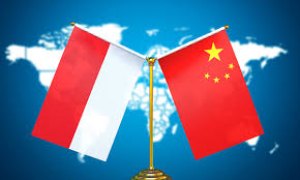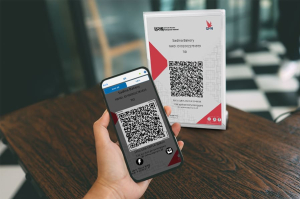Indonesia's First! PLN Launches Green Hydrogen Refueling Station
In a significant milestone for Indonesia, State electricity company PT PLN, through its subholding PLN Indonesia Power, has officially launched the first hydrogen refueling station (HRS) in the country, located in Senayan, Jakarta.
PLN President Director, Darmawan Prasodjo, announced that this HRS marks a strategic step forward for the company in utilizing hydrogen produced from both thermal and renewable power plants, totaling 22 units. Currently, the production yields 203 tons of green hydrogen. "PLN's requirement for cooling our power plants is only 75 tons, which means there's an excess of 138 tons of green hydrogen available for the transportation sector," explained Darmawan during the inauguration of the HRS in Senayan, Jakarta, on Wednesday, February 21, 2024.
With the current allocation of 128 tons of green hydrogen, PLN estimates it can provide energy for 438 cars annually, resulting in a reduction of approximately 1.59 million liters of oil consumption and 4.15 million kilograms of CO2 emissions per year. "When using the hydrogen refueling station here, the cost is only about Rp276 per kilometer, compared to using gasoline at Rp1,300 per kilometer," he added.
Additionally, he highlighted that the cost per kilometer for green hydrogen is also highly competitive compared to electric vehicle charging costs ranging from Rp350 to Rp400 and ultra-fast charging at Rp555 per kilometer. "We are also exploring potential collaborations with existing public transportation systems in Jakarta," he further stated. The Senayan HRS is equipped with hydrogen-based electric vehicle chargers, functioning similarly to public electric vehicle charging stations.
Furthermore, a Hydrogen Center and Hydrogen Gallery Room have been established as training and educational centers for hydrogen-related activities in Indonesia. Recognizing the immense potential, PLN has innovatively integrated solar PV panels installed within PLN's power plant areas, combined with renewable energy certificates (RECs) from various renewable energy sources in Indonesia. Through this innovation, PLN aims to produce 100% green hydrogen, which can not only be utilized for power plant cooling but also for various other purposes including fertilizer production, chemical industries, co-firing in power plants, and fuel cell electric vehicles.
Tag
Already have an account? Sign In
-
Start reading
Freemium
-
Monthly Subscription
30% OFF$26.03
$37.19/MonthCancel anytime
This offer is open to all new subscribers!
Subscribe now -
Yearly Subscription
33% OFF$228.13
$340.5/YearCancel anytime
This offer is open to all new subscribers!
Subscribe now






